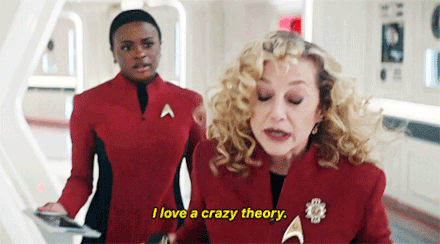
Sense Offence

Sense Offence
We are born into this time and must bravely follow the path to the destined end. There is no other way. Our duty is to hold on to the lost position, without hope, without rescue, like that Roman soldier whose bones were found in front of a door in Pompeii, who, during the eruption of Vesuvius, died at his post because they forgot to relieve him. That is greatness. That is what it means to be a thoroughbred. The honorable end is the one thing that can not be taken from a man.
― Oswald Spengler
sqq. *

Heinz Mack | Dynamic Structure in Black | 1962

[Ich habe da eine verrückte Theorie.] Ah. [So verrückt ist sie gar nicht.] Schon gut, jetzt spielen Sie es doch nicht runter. Ich liebe verrückte Theorien.
— Cmdr. Pelia (Carol Kane) in:
Star Trek SNW, Hegemonie; 2023
Konzentriertes Abendland.
— Peter Scholl-Latour

Sturmbegegnung von U 96 und U 572 am 04.11.1941
im Atlantik; fotografiert von Lothar-Günther Buchheim
Nicht minder unsicher und undurchschaubar erschien die Gesellschaft insgesamt. Sie war durch fragile Identitäten, soziale Fragmentierung, Materialismus und Egoismus sowie scheiternde Beziehungen und soziale Isolation gekennzeichnet. Gefühle von Ohnmacht und Bedrohung prägten das Bild der Risikogesellschaft und schufen den Eindruck ontologischer Aussichtslosigkeit.
— Christoph Classen;
aus: Die Schimanski-Tatorte und der Wandel
von Gewalt in westdeutschen Fernsehkrimis
sqq. *

[Feel the Juche; thank.]

TELE-MACK; fotografiert von Edwin Braun, 1968
The crowd is the gathering place of the weakest; true creation is a solitary act.
— Charles Bukowski
sqq. *

sqq. *
I never even thought about whether or not they understand what I'm doing [...] the emotional reaction is all that matters, as long as there's some feeling of communication, it isn't necessary that it be understood.
— John Coltrane
I have frequently seen people become neurotic when they content themselves with inadequate or wrong answers to the questions of life. They seek position, marriage, reputation, outward success of money, and remain unhappy […] even when they have attained what they were seeking. Such people are usually confined within too narrow a spiritual horizon. Their life has not sufficient content, sufficient meaning. If they are enabled to develop into more spacious personalities, the neurosis generally disappears.
— Carl Jung